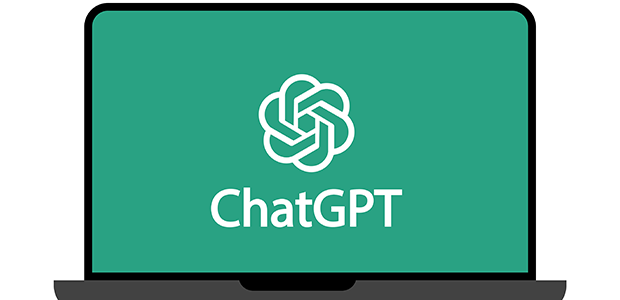
What does ChatGPT mean for the future of SEO?
There is no doubting that OpenAI’s chatbot's advanced conversational capabilities have generated quite the buzz.
Largely seen as a watershed moment for the tech world, ChatGPT, for the uninitiated, is a natural language processing tool that allows you to have human-like conversions via a chatbot. It’s dialogue format makes it possible to answer questions, challenge incorrect premises, and even reject inappropriate requests. It can also assist users with tasks such as writing emails, drafting proposals and even code.
Indicative of its impact, it is estimated that ChatGPT is the fastest-growing app of all time – clocking up 100 million users only two months after its launch. In comparison it took nine months for TikTok to reach 100 million users.
The result? While once a distant, futuristic idea, the reality is that our robotic overloads are coming as OpenAI’s breakthrough continues to trigger a new global race in AI which is set to transform industries and the future of work as we know it.
Cue an inevitable weighing up of the pros and cons associated with automating key business functions, particularly in terms of marketing and copywriting.
Amongst this, the key advantages include the potentially huge productivity gains, the opportunity to unburden marketing talent from the mundane and monotonous to free up their valuable time for more strategic and creative tasks, and the associated cost-efficiencies.
The cons list appears just as extensive too, with key concerns surrounding AI’s inability to produce truly novel ideas or shows empathy, along with the well versed risk of inherent bias.
Perhaps though, one of the most interesting yet less documented areas in all of this is the impact the that the next generation of generative AI is likely to have on SEO.
As any business leader will know, a robust and effective SEO strategy is the holy grail of the modern marketing mix. Get it right and it can enable brands to boost their credibility, reach more people, gain a competitive advantage, maximise paid marketing (PPC) campaigns and deliver meaningful, quantifiable commercial impact.
Of course though, any SEO strategy is only as good as the content it is founded on. It hinges on a wider framework of regular, consistent web articles, blogs and social media posts purposefully created to contain the key words which are relevant for the brand and target demographic. Hereby, the ultimate goal of SEO is to generate organic traffic – getting searchers clicking through to the website.
The question then begs – what will happen if robots take over SEO-based copywriting? Inherently, any AI is trained only on pre-existing material, therefore it can only create new content that is similar to that work. This means that it cannot be impulsive or spontaneous, generate fresh ideas or invent anything. Thus, there lies the potential risk of oversaturation of the same content. Say, if all energy companies use it to ‘write a blog on saving energy in the home’ without much personalisation, all blogs on this topic will be the same. Of course, most online articles are used to help SEO, so it remains to be seen how brands will gain an organic visibility advantage over competitors using this method.
Though we are still in the early stages of the conversation, the good news is that SEO professionals and marketers shouldn’t be daunted by this evolution.
Indeed, ChatGPT and other LLMs can be used to generate SEO content but that doesn’t necessarily mean they should be – at least, not in its entirely. At the moment, Google algorithms is able to identify and penalise AI-generated content. This means, even when using AI to generate basic content to save time, there should always be some level of human intervention to develop it further for the audience and ensure some level of originality.
In other ways though, ChatGPT can be used to elevate copy further. It can be used, for example, to render the often mundane task of keyword research practically effortless. Users simply need to type in a few example target keywords, and ask for related ones. A short while later, it is able to produce a vast list of keywords and phrases – which, again, may still need adapting – something which would take much longer via a traditional manual research.
What’s also great in terms of SEO-related potential is ChatGPT’s ability to go beyond words and really drill down into the search intent – the need behind the search query - of the user. For example, users can copy-paste a list of search queries and ask for the intent of the query using the prompt, ‘what is the user intent behind these queries?’ This can ensure each piece of related content is able to answer the query better in order to shoot up the rankings – especially important for startups looking to drive traffic quickly and at low cost.
Even with all the media hype though, the reality is that the true impact of generative AI remains to be seen. However, that is not to say that startups can afford to lose sight of the conversation. As with all major technological shifts, it will be those that keep pace that retain a competitive advantage. Thus, the recommendation is for startups to consider how to incorporate some of ChatGPT’s benefits in order to free up time for the creative, strategic and innovation-led focuses – most likely requiring a human brain.


